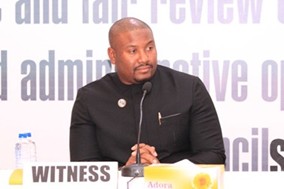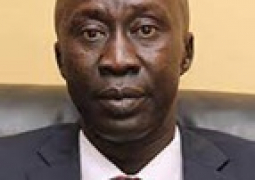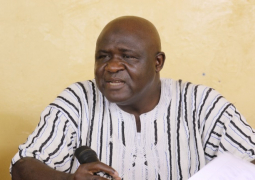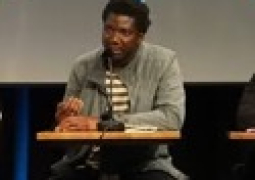
The inquiry, which is examining financial and governance practices across local councils, revealed inconsistencies between the mayor’s testimony and documented council procedures. Bensouda maintained that his role is strictly political, deferring operational responsibilities to the Chief Executive Officer (CEO).
At the start of the hearing, Bensouda submitted a bundle of documents the commission had ordered him to provide, which were admitted into evidence. They included the finance committee’s investigation report on unaccounted revenues, reports on unpresented General Tax Receipts (GTRs), the IT manager’s resignation letter, memos from the Director of Administration to the CEO, surrender-of-office keys and handover notes, a letter from the Managing Director of Matrix Solutions, the final exercise on fraud allegations at KMC, updates on Mbalit revenue shortages for 2021 and 2022, responses from Eco Tech on Mbalit ticketing data, KMC bank account details, and missing payment vouchers.
Lead counsel referred the mayor to the council’s financial manual and expenditure thresholds. One memo showed that thresholds were reduced from D500,000 to D100,000 with the participation of the CEO, finance director, and the mayor. Bensouda claimed he was unaware of the memo but resolutions were passed.
When asked by counsel why financial thresholds are important, Bensouda said when they took office “there was a lot of mess to deal with.” Counsel pressed him on whether the council should abide by the financial manual and its thresholds. Initially reluctant to answer, the mayor was instructed by Chairperson Jainaba Bah to respond. He eventually conceded that the council should follow the manual.
The commission examined minutes of senior management meetings. In one, Bensouda expressed the need for some construction at the Brikama garage to be done. In others, falling revenue was discussed, and minutes recorded that payments over D100,000 were to be forwarded to the mayor. Bensouda said these were either “suggestions” or misinterpretations due to language.
Counsel pointed out that council CEOs had testified that they briefed the mayor daily and that he not only attended but also led senior management meetings.
Bensouda said any CEO who made that statement was not being honest, adding that he did not see anything peculiar in being briefed, though he added the meetings “should have been better structured.”
Counsel countered that his claim of separation of powers was only “theory,” as documentary evidence suggested otherwise.
A focal point was the D15,000 medical support given to staff member Habib Ceesay. Counsel stressed he was not questioning the act of support but raised the case because the mayor had denied giving orders on Monday during his testimony.
Records showed that Ceesay wrote to the council seeking assistance. The CEO referred the matter to the mayor for review and advice. In response, Bensouda directed the Director of Services to provide the money but instructed it be treated as a retireable imprest. Counsel argued this was a clear order, contradicting the mayor’s claim of not directing operations. He questioned what exactly was being “retired” since the letter did not indicate hospitalization.
Bensouda defended his action as a humanitarian measure: “I acted to save a life.” Counsel responded that while the payment itself was not the issue, no subordinate was bound to follow an unlawful order. The mayor insisted he was giving advice, not an instruction, but counsel maintained that his endorsement made the order clear.
The commission also examined a memo dated 27 June 2019 from the mayor’s office, requesting allocation of a vehicle for a public relations officer to travel to Senegal to receive the passport of mayor . Initially denying he issued such instructions, Bensouda later admitted the letter came from his office and bore his signature.
Another set of minutes showed the mayor asking that the appointment of Kemo Fatty be fast-tracked. Counsel asked why he would intervene in staff recruitment if he played no role in management. Bensouda responded that he only wanted processes to move smoothly not that he was giving instruction, adding that his instructions are always issued in writing, not verbally.
Counsel countered that meeting “merits” (minutes) formally record what is said and are signed after review, asking whether those signed merits were false. The mayor said he would need to confirm.
A procurement matter was also discussed involving a payment to Mustapha Kanyi for spare parts. Bensouda said he was unaware of Kanyi’s role in procurement and that he only saw procurement reports when the CEO sought his advice.
Counsel pressed Bensouda on his earlier testimony that the CEO was not answerable to him. The mayor clarified that the CEO was not answerable on daily activities but was accountable to him on governance matters. Counsel argued this contradicted his previous attempts to distance himself from the council.
On legal advice, counsel asked whether the council’s lawyer advises the council or the mayor personally. Bensouda said as head of the council, he cannot be separated from it. Counsel pointed out the inconsistency, noting that the day before the mayor had tried to separate himself from the council, yet now he was associating himself with it.
At one point, lead counsel told the mayor he was not being honest. Bensouda objected, calling it an insult. Chairperson Jainaba Bah intervened, urging decorum but stressing accountability: “Anyone who serves in public office will be held accountable. The best we can do is to admit mistakes it gives strength to the system.” She reminded both counsel and witness that the counsel has right not to believe the witness is not being honest likewise the witness has right defend that he is being honest. “The inquiry is about responsibility and not to bullying anyone.”
The mayor was also referred to an agreement letter dated 6 April 2020, signed by the council lawyer and the director of administration. The letter was entered into the record as further evidence of the council’s administrative processes involving the mayor.
Throughout the session, Bensouda continued to insist his role was limited to political or governance oversight and that the CEO could disregard his input if he feels it necessary . Counsel, however, maintained that signed minutes, memos, letters, and testimonies from officials show the mayor exercised direct authority in management decisions.




